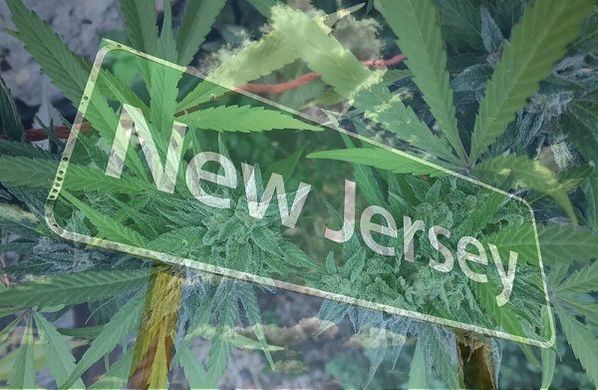Sweeney wants to prioritize New Jersey’s legalization ballot issue for 2020 election

Rumors have been circulating regarding the death of New Jersey’s failed cannabis legalization effort, which previously struggled to gain enough votes for a House floor vote. In spite of what people might have thought, Gov. Phil Murphy and Senate President Stephen Sweeney claim that cannabis legalization is still on the table for the state.
“I think I’ve been consistent that I hoped we could have one more shot at this,” Murphy told reporters earlier this month. “Getting something to happen sooner, if we have a real shot at that, I’d be all in. Count me in to try and work toward that.”
Sweeney says that he wants to introduce cannabis legalization as a ballot issue for next year’s election. He claims that he will “make one more run” to help the people of New Jersey gain access to legal weed, after previously telling them it wouldn’t happen.
Failure to legalize recreational cannabis in New Jersey led to success for medical cannabis

The repercussions that followed Sweeney’s legal cannabis rejection were not so catastrophic after all. While it might have been unfortunate for recreational consumers, Sweeney’s failed attempt to legalize recreational cannabis in New Jersey gave the state’s medical cannabis industry a boost.
On Thursday, June 20, state legislators announced their decision to expand medical cannabis access and product options for patients. Gov. Phil Murphy – who assumed his position in-office in January – provided an additional 30,000 patients with streamlined integration into New Jersey’s medical cannabis program. The patient count at the time of the bill’s signing rested at around 50,000, bringing the prospective total to 80,000.
A revised medical cannabis application process was introduced on Tuesday, July 2, when the Jake Honig Compassionate Use Medical Cannabis Act was signed into effect by Gov. Murphy. Under the terms of the amended law, the Department of Health sought 24 new medical cannabis businesses to participate in the program. Oversight of the industry was also passed onto the Cannabis Regulatory Commission.
Monthly limits were increased for patients as per New Jersey’s amended medical cannabis rules. Additionally, edibles were made available to patients, who were indulged with employee protections and home cannabis delivery. When the Committee advanced New Jersey’s medical cannabis bill, individuals with past cannabis convictions were also told that they would be able to have their past convictions expunged.
Lawmakers push for cannabis decriminalization in New Jersey
Following a failed attempt to get New Jersey’s cannabis legalization bill to the House floor for a vote, Assemblywoman Annette Quijano, D-Union started looking in the direction of decriminalization. Back in May, Quijano sponsored a cannabis decriminalization bill that managed to fly through the Assembly Appropriations Committee.
Based on the details of New Jersey’s cannabis decriminalization bill, individuals caught in possession of less than two ounces would be required to pay a $50 fine. However, it is uncertain as to whether or not the bill will progress any further.
Cannabis advocates in New Jersey believe that decriminalization is not sufficient to dismantle the black market. Cofounder of New Jersey United for Marijuana Reform, Bill Caruso, agrees. He says that Quijano’s bill will do “nothing” to keep cannabis out of the hands of underage consumers, nor to eradicate weed from the illicit market.
“Decriminalization of [cannabis] actually allows these illicit markets to thrive. Illegal dealers no longer need to worry about their customers getting arrested. Possession of [cannabis] amounts to nothing more than a traffic ticket, rather than an arrest and risk of incarceration,” Caruso wrote in an article for Asbury Park Press.
“While that may be good for the individual avoiding arrest, it is bad for New Jersey citizens, because the harms to society persist absent the benefits derived from legalization,” he added.
Plus, with rumors circulating about a pot bill being brought back to life in the Democratic-dominated state, lawmakers are unlikely to consider enacting a decriminalization law until after the 2020 election.







